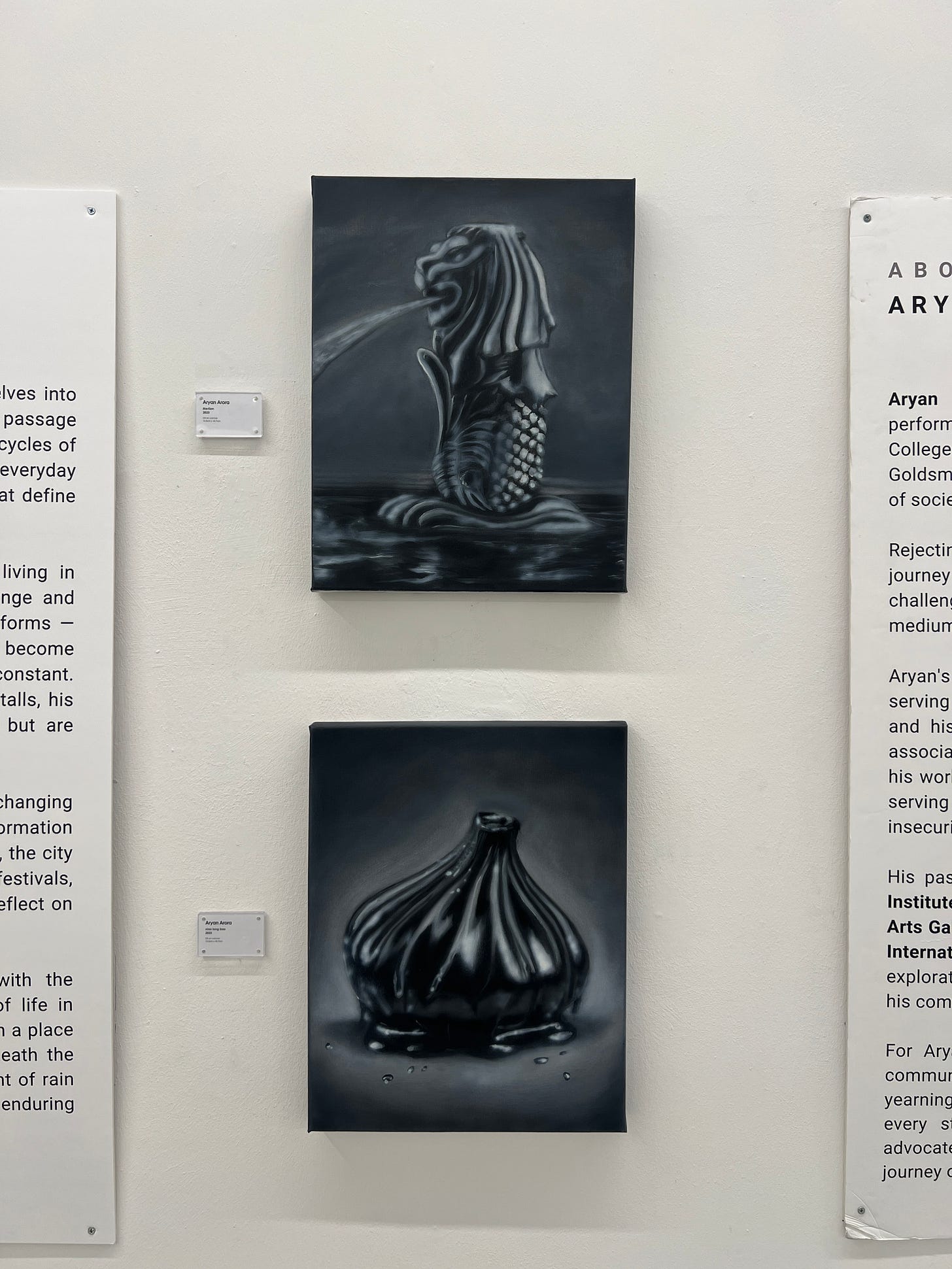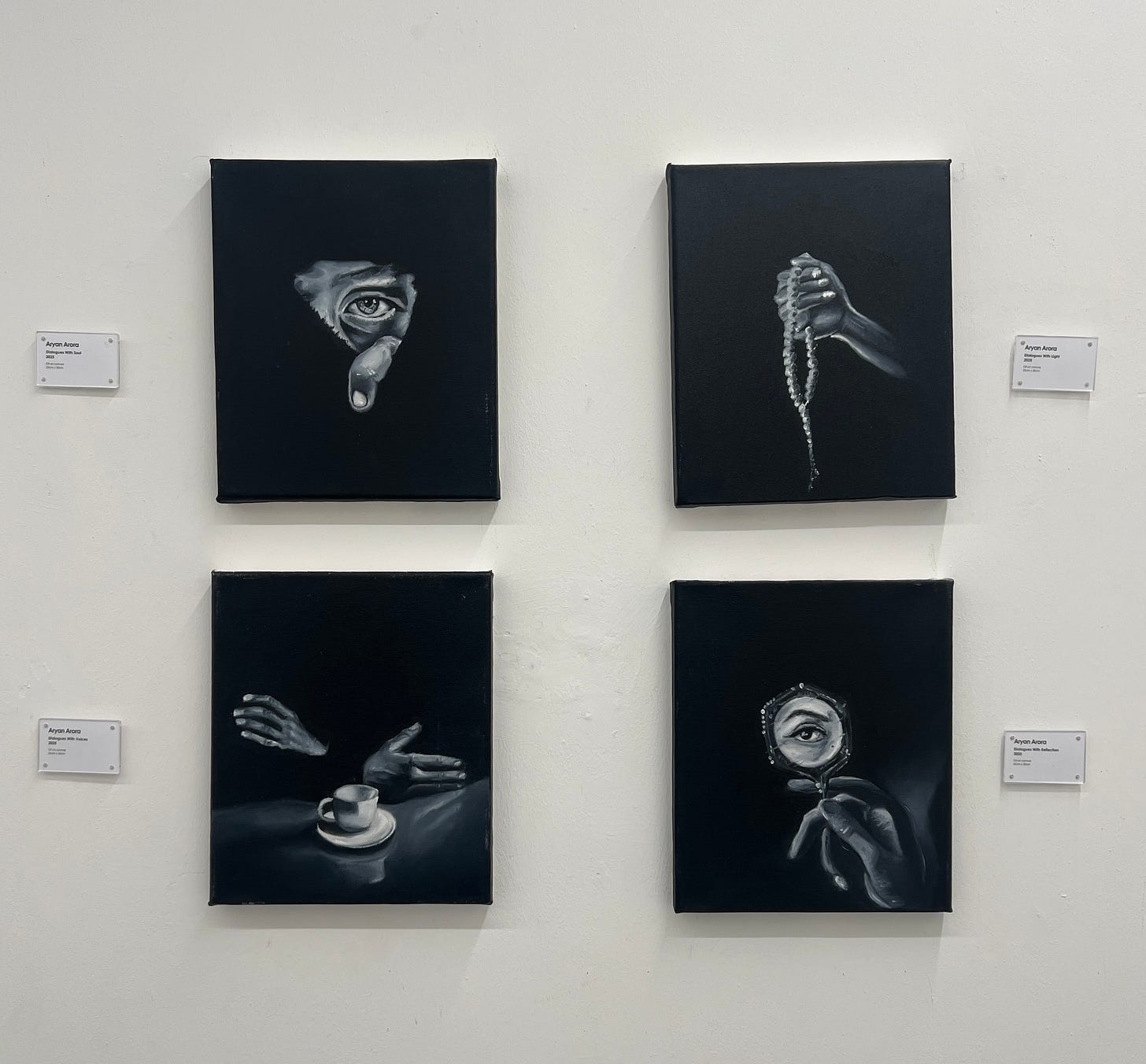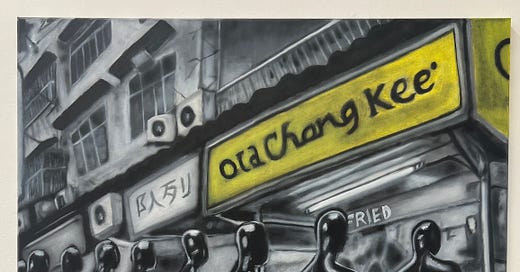Unmasking the Social Fetish: An Unchanging World of Exchange
Review of Seasons without Snow: Singapore’s Petrichor by Aryan Arora
Seasons without Snow: Singapore’s Petrichor
17/05/2025 - 24/05/2025
INSTINC Space, 39 Keppel Rd, #03-10 Tanjong Pagar Distripark, Singapore 089065
Artist: Aryan Arora


“What are the roots that clutch, what branches grow Out of this stony rubbish? Son of man, You cannot say, or guess, for you know only A heap of broken images, where the sun beats, And the dead tree gives no shelter, the cricket no relief, And the dry stone no sound of water.” — T.S Eliot, The Wasteland
In Aryan Arora’s Seasons without Snow, a nation’s implied lack of an ecological shift is substituted by a storm highly socio-economical. Gloom is the aesthetic constant here, its monochromatic motif cementing swollen clouds with no rain. Seasons without Snow marks Singapore as its own desert Wasteland, sans winter, an eternal- fall. The arid state dips into decadence, through subjects clad in fetish fashion, Latex, linked to its topical gestures of a literary counterpart as commodity fetish with every image centred on trade. In a world primed on more exchange, more gain, more life, one is given a semblance of hyper vitality missing its mark.
The unreality propounds itself, as with every other commercial critique, as a homogenous reduction. A tissue seller or a consistent kopi patron, buyers in a queue, window wiper—every participating adult is gilded and surrounded by a hyper allure that contributes to consumption amid traded labour. The same guise affects a Xiao Long Bao and the tourist appetite that is the Merlion. The correlation puts producer and product as chroma equals. The consumed object begets more chefs, more subjects whose labour is also consumed, creating a capital cannibalism that repeats itself. The only weather here is the weathering of self.
What is really curious however are moment’s leather suits are not present. Four paintings interject the latex series, introduced with titles of “dialogues”. Here, we see the body discernible in fragments, but features that nonetheless allude to a sum of perception. In contrast to an exchange of commodities, the alternative allusion is an ideational variant geared to consciousness: an exchange of ideas.
Eyes prying “Dialogues with Soul”
Rosaried hands “Dialogues with Light”
A coffee date “Dialogues with Voices”
The Mirrored I “Dialogues with Reflection”
Each sense perception is rekindled. A totality of self is gestured to. On top of a corporeal restitution, it is an ignition of more thought, or as Plato would put it “the conversation of the soul with itself1. In a world bent on reduction, on a unilateral mode of conduct, of Being as a cannibalism, here is a restitution of the orifice in dialogue: to gift words.
By the end of the exhibit, Seasons re-orients moral direction. It provides, less to possess; compassion, less to consume. The final work is a child’s hand offering drink (note its absence of a gilded dress). It’s innocence, pre-socialisation, of purity, of deliverance. Eliot’s rain call burgeons: “Then spoke the thunder / DA2. Rain falls in the the colloquial respite of sympathised teh.
The scent of rain lingers on mercy. The invitation is more than a nostalgic return to childhood days, but a recovery of self beyond industrial taint, beyond economic precedence, beyond a fetish reduction to apparent means. It is the nascent instinct towards grace.
Plato. (1987). Theaetetus (R. A. H. Waterfield, Trans.). Penguin Books.
Eliot, T. S. (2003). The Waste Land and Other Poems (F. Kermode, Ed.). Penguin Classics.









